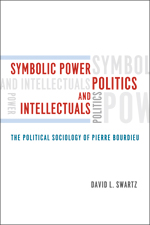Below are the contents of the latest issue of Mobilization: the December special issue on nonviolence and social movements, Sharon Erickson Nepstad, guest editor.
https://mobilizationjournal.org/toc/maiq/20/4
To submit a paper, European authors should send their blinded manuscript along with a separate cover page with author contact details to Marco Giugni marco.giugni@unige.ch.
You can read more about Mobilization here https://mobilizationjournal.org/
Volume 20, No. 4 December 2015
TABLE OF CONTENTS
NONVIOLENT RESISTANCE RESEARCH
Sharon Erickson Nepstad: nepstad@umn.edu
Studies of nonviolence give insights to issues that are central to the study of contentious politics. In democracies, most protest movements take nonviolent tactics for granted. In nondemocracies, nonviolent resistance is an effective strategy to challenge the state. Nepstad’s article traces the development of nonviolence research and its often-regretful separation from social movement research. Her thoughtful review of the main findings of nonviolence research, especially regarding the strategy-outcomes relationship, makes this article essential reading.
DO CONTEMPORANEOUS ARMED CHALLENGES AFFECT THE OUTCOMES OF MASS NONVIOLENT CAMPAIGNS
Erica Chenoweth and Kurt Schock; Erica.Chenoweth@du.edu kschock@andromeda.rutgers.edu
It is common that antiregime resistance movements have violent radical flanks. This important contribution analyzes the effects of armed wings on nonviolent movements using a data on 106 antiregime campaigns. Significantly, it finds that radical flanks reduce the chances of movement success. The authors then closely analyze two paired comparisons: Burma and Philippines, and early and late antiapartheid mobilizations in South Africa. Fine-grained comparisons show complex causal paths, but conclude that violent flanks rarely determine movement success.
REVOLUTION, NONVIOLENCE, AND THE ARAB UPRISINGS
George Lawson: g.lawson@lse.ac.uk
Lawson analyzes the Arab Spring protest wave, finding that “timing is everything” when outcomes are considered within the broad protest cycle. His comparisons further situate movements in their global context by showing that international dynamics were the precipitant causes. As the wave developed, movement organization and use of communication technologies mobilized participants, but also elite control of security forces—the “deep state”—and its learning curve of effective repressive responses proved to be a counterweight for later movements.
NONVIOLENCE AS A WEAPON OF THE RESOURCEFUL: FROM CLAIMS TO TACTICS IN MOBILIZATION
Peter B. White, Dragana Vidovic, Belén González, Kristian Skrede Gleditsch,
and David E. Cunningham: pbwhite@umd.edu
Impressive in the scope of its comparisons, this article analyzes opposition movements in the national republics of the former USSR. The authors suggest that tactical choices are taken as activists articulate initial antiregime claims in the context of their available resources. They find that violent tactics are associated with structural dimensions of resource availability, such as economic development, urbanization, and state capacity. Nonviolent tactics are more likely in urbanized developed states, which have better prospects for mass mobilization and poor prospects for covert action.
RIGHTFUL RADICAL RESISTANCE: LAND STRUGGLES IN INDIA AND BRAZIL
Kurt Schock: kschock@andromeda.rutgers.edu
In another comparative study, Schock compares the Brazilian MST with the Indian Ekta Parishad movement to show how activists draw upon constitutional principles and laws to pursue civil resistance. This strategy parallels O’Brien’s concept of rightful resistance, except that these movements occur in democracies not authoritarian China. The “radical” elements of this strategy, as indicated in the title, reflect adaptations to entrenched power structures in Brazil and India. Actual tactics vary by culture, geography, and demography in each country.
DECOLONIZING CIVIL RESISTANCE
Sean Chabot and Stellan Vinthagen: schabot@ewu.edu
Chabot and Vinthagen argue that civil resistance research often ignores struggles seeking to subvert the liberal world system—as opposed to joining it. They examine two classic decolonizing thinkers (Gandhi and Fanon) and two contemporary decolonizing struggles (the Zapatistas in Mexico and the Abahlali in South Africa). Each case emphasizes coloniality, constructive over contentious resistance, transformations in political subjectivity, and emancipatory visions that go beyond Western ideals.
THE DYNAMICS OF NONVIOLENCE KNOWLEDGE
Brian Martin: bmartin@uow.edu.au
This article is a study in the sociology of knowledge that explains why nonviolence research receives less scholarly attention and financial support compared to military research and studies of conventional politics. Martin explores misconceptions about nonviolence research, why so much of it is oriented to challenging regimes, and its connection to nonviolent practice. He concludes by emphasizing the value of studying agency and strategy, and of the insights gained by being involved in the movements being studied.






